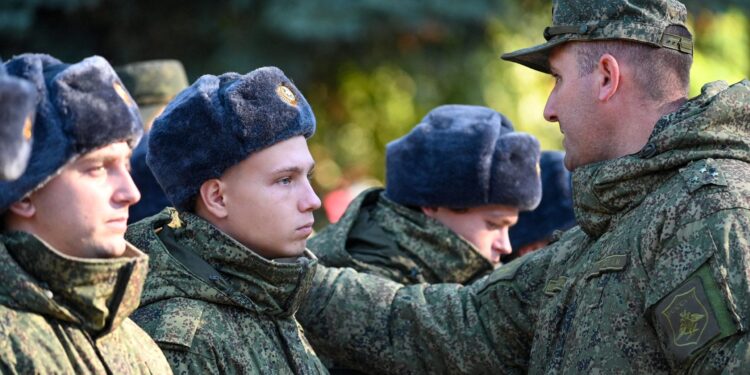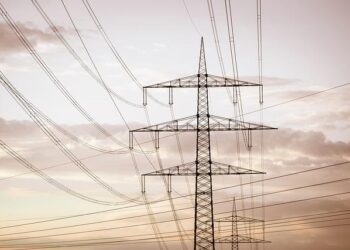Russia is intensifying its efforts to reassert influence over Moldova, according to a recent report by the Institute for the Study of War. The move comes amid heightened geopolitical tensions in Eastern Europe, as Moscow seeks to strengthen its foothold in the strategically positioned former Soviet republic. This development underscores the ongoing struggle for regional dominance and the challenges faced by Moldova as it navigates pressures from both Russia and Western powers.
Russia’s Strategic Moves to Reassert Control over Moldova’s Political Landscape
Moscow has intensified its engagement with key Moldovan political actors, leveraging economic dependencies and energy supplies to exert pressure. This includes strategic investments in pro-Russian parties and the amplification of disinformation campaigns targeting the Moldovan electorate. Notably, Russia continues to exploit the unresolved Transnistrian conflict as a geopolitical lever, maintaining a military presence and backing separatist leaders to undermine Chisinau’s sovereignty and EU integration ambitions. These maneuvers aim to destabilize Moldova’s political center, fostering divisions and eroding public trust in Western-aligned officials.
To better understand Moscow’s influence tactics, consider the following core components of its strategy in Moldova:
- Energy Leverage: Manipulation of gas supplies to pressure government decisions and public opinion.
- Political Support: Financial and logistical backing of parties favoring closer ties with Russia.
- Information Warfare: Amplified narratives through media outlets and social platforms to sow discord.
- Transnistrian Leverage: Maintaining a frozen conflict to limit Moldova’s geopolitical maneuverability.
| Method | Objective | Impact |
|---|---|---|
| Energy Dependency | Economic Pressure | Government Concessions |
| Political Financing | Influence Election Outcomes | Pro-Russian Parliamentary Presence |
| Disinformation Campaigns | Public Opinion Manipulation | Polarized Society |
| Military Support in Transnistria | Maintain Frozen Conflict | Geopolitical Leverage |
Assessing Moscow’s Influence Tactics Amid Moldova’s Western Integration Efforts
Moscow has intensified its strategic deployment of multifaceted influence tactics aimed at curbing Moldova’s trajectory towards Western integration. These efforts notably include disinformation campaigns targeting Moldovan political discourse and media outlets, designed to sow doubt about the benefits of EU and NATO alignment. Alongside information warfare, Russia continues to leverage economic pressure through energy supply manipulations, exploiting Moldova’s dependence on Russian gas to destabilize the domestic political landscape. Additionally, Moscow cultivates alliances with pro-Russian political factions and civil society actors within Moldova, using both financial incentives and covert support to challenge reformist agendas.
The Kremlin’s approach is comprehensive, combining hard and soft power methods to maintain leverage over Moldova’s political decisions. Key tactics in use include:
- Cyber operations: Persistent cyber-attacks aimed at government infrastructure.
- Propaganda dissemination: Amplification of anti-Western narratives via traditional and social media.
- Political interference: Support for parties and NGOs promoting pro-Russian policies.
- Economic coercion: Manipulation of energy pricing to influence public opinion and policymaking.
The following table summarizes Moscow’s principal influence channels and their targeted outcomes within Moldova:
| Influence Channel | Primary Target | Objective | ||||||||||
|---|---|---|---|---|---|---|---|---|---|---|---|---|
| Media & Propaganda | Public Opinion | Undermine EU/NATO support | ||||||||||
| Energy Supplies | Government Policy | Exert economic leverage | ||||||||||
| Recommendations for Western Policy to Counter Russian Encroachment in Moldova To effectively challenge Moscow’s persistent attempts to undermine Moldova’s sovereignty, Western actors must enhance their strategic engagement with Chisinau. This involves markedly increasing economic aid aimed at bolstering Moldova’s energy independence and infrastructure resilience. Simultaneously, providing robust support to civil society and independent media within Moldova will counter disinformation campaigns that seek to destabilize the country’s democratic trajectory. Coordinated intelligence sharing among NATO and EU partners will further help identify and neutralize covert Russian influence operations targeting Moldovan institutions. Additionally, a comprehensive diplomatic strategy is essential to strengthen Moldova’s position on the international stage. Western governments should prioritize:
The Way ForwardAs Russia persists in its efforts to reclaim influence over Moldova, the situation remains a critical point of concern for regional stability and international actors monitoring Eastern Europe. The Institute for the Study of War’s analysis highlights the complexities facing Moldova as it navigates external pressures and internal challenges. Moving forward, the unfolding dynamics will be essential to watch, with implications not only for Moldova’s sovereignty but also for broader geopolitical alignments in the region. ADVERTISEMENT |
















